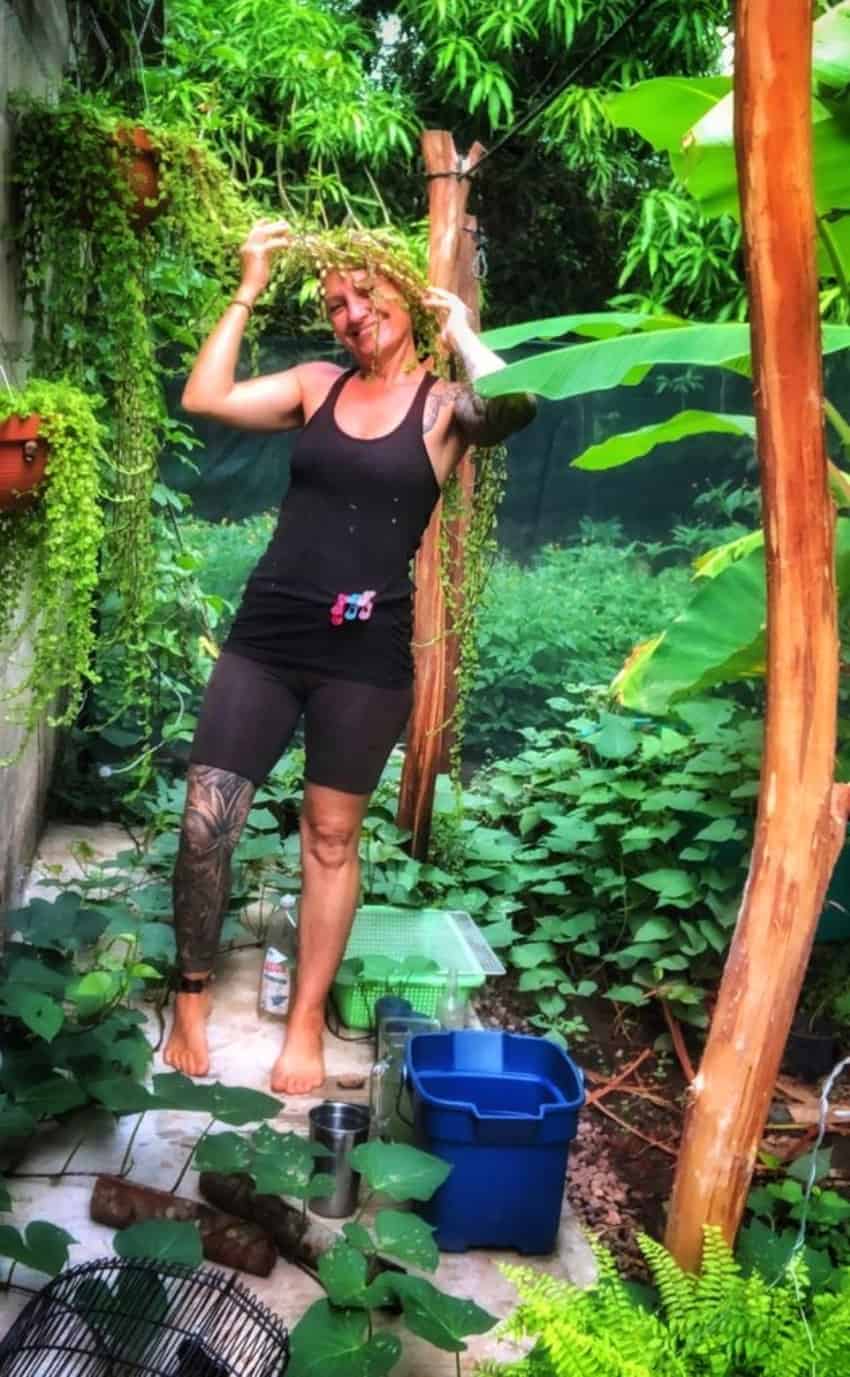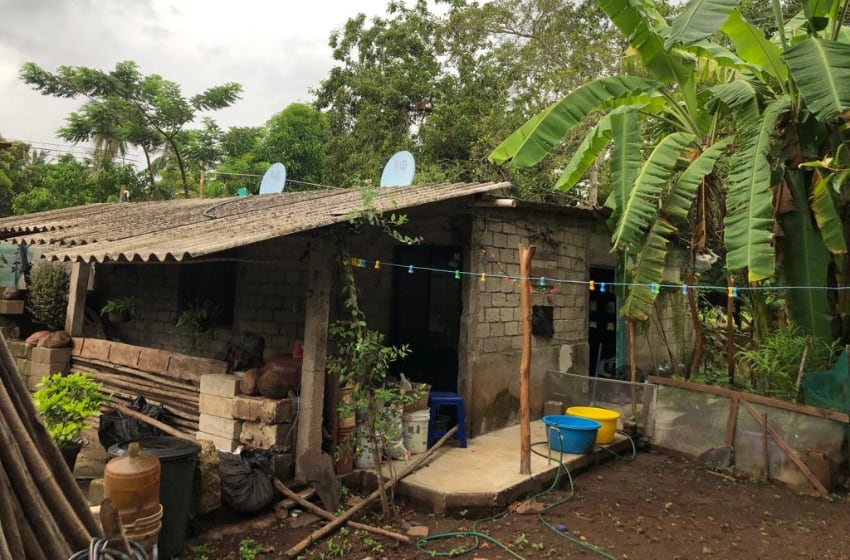“People have told me for years that I need to write a book,” says Survivor Kelly Roske.
If she ever gets round to writing it, that book will chronicle her lifelong struggle to “live wild,” wandering Hawaii, the western US, Mexico and even short stints in Africa, which includes starring in an episode of Discovery Channel’s “Naked and Afraid.”
“I’ve moved 50 times in 25 years, on no money hitchhiking, busses,” Roske explains. Hers is a lifestyle determined in part by fate and part by her whims.
Living a nomadic life “off the land”
Roske remembers her childhood as “extremely restrictive,” “tasting freedom” when she moved to live with her “hippie” Dad on Maui.
At age 20, she was widowed with two toddlers and only a $500/month Social Security stipend in one of the US’s most expensive states. Instead of the typical single mother life of work and babysitter, she and her family simply made do without a house or apartment, living in cars, tents and shelters they built themselves.

This tactic brought them closer to nature, as well as affording them mobility. Over the years, The family wandered Hawaii and parts of the western US, crossing several times into Mexico. Her first stint in Mexico was in 2001, arriving in the San Blas, Nayarit area with her two young children after 70 hours on the bus. Locals were afraid for her. “Aren’t you afraid that somebody’s going to come and kill you?” they asked. She admits they did sleep with weapons, but then again, she did that in Maui as well.
She and her children learned many skills, often by trial and error, but even the most resourceful forager needs some money in the modern world. Roske and her kids learned to do all kinds of jobs to make ends meet. In Maui, she worked contacts, landing jobs cleaning mansions. In San Blas, she figured out how to bake using a pot on the stove, making bread and muffins to sell.
She trained as a midwife in Uganda, and in biomagnetic pair therapy after a healer cured her daughter in Mexico. She also learned how to build, using a technique called “super adobe” – sacks filled with earth and cement stacked into a dome shape.
Until very recently, her life included raising four children, and like her, they grew up outdoors, “free” from public schooling via “unschooling” (homeschooling). Today, all four are grown and these apples did not fall far from the tree. All live lives on their own terms, using many of the skills they learned with Mom.
Naked? Yes – Afraid? No
“My favorite thing to do is to be in nature and come back with backpacks… with everything I can make something out of… because I am observant.”
Her unusual lifestyle has gifted her mental stamina and practical skills, resulting in a spot on Naked and Afraid. Cast as a kind of “earth mother” with the nickname Mama Kel, she was whisked off to South Africa, to stand “alone” with her male partner (and a camera crew) to see if the two could survive 21 days in bush. Her partner quit after only 4 days because of an injury, but Roske finished the challenge herself – one of very few women to do so. The show aired in April 2019 with the title “Stalked on All Sides.”
She enjoyed the challenge and is working to get invited on to similar shows.
Current stint in Mexico

Roske’s lifelong obsession is to have a large isolated piece of land where she can live as she wants. Highly introverted, her dream has always been to live in nature, in as much isolation as possible. She wants little more than books, an internet connection and to be far enough away that she can dance naked outside when she wants.
Roske tried to make this work in the U.S. but has come to realization that it is not economically or socially viable. Taxes, permits, regulations and just the cost of living means that she has had to “don her society gear” to work jobs far more than she would ever want.
Instead, she would rather meet her needs “in a sustainable way,” meaning meeting her physical needs through gardening and collecting from nature. Both Mexico’s lower cost of living and far more laissez-faire attitudes towards regulation promise this.
To get started, she returned to familiar Nayarit to settle temporarily in a small beach village. Although quite “rustic” by most of our standards, she finds herself too much in civilization, especially bothered by male eyes that stare at the only white women with tattoos they may have ever seen.
The long-term goal is to move further into Mexico’s mountainous inland, where she hopes to have enough isolation to live as she pleases. Even in such a small village, she says, “I am at about 5% of what I am when I am living outdoors as far as just being creative – living in nature and weaving the plants together, building and gardening and planting… I have none of that right now.”
There is a bit of time pressure for her right now as well. Although only 48, a lifetime of physical labor has taken its toll, Her goal is to get her land while she is still able to do things like build adobe houses and set up her library. Fortunately, one of her sons has decided to return to Mexico to help make this a reality.
Like many of us have discovered, Mexico offers opportunities that our home countries do not to live as we wish. Roske emphasizes this. “I have always loved Mexico,” she says. “It is always where we wanted to end up. Mexico has always meant Freedom to us.”
Roske is not easy to reach. Your best bet is through Instagram or Facebook.
Leigh Thelmadatter arrived in Mexico over 20 years ago and fell in love with the land and the culture in particular its handcrafts and art. She is the author of Mexican Cartonería: Paper, Paste and Fiesta (Schiffer 2019). Her culture column appears regularly on Mexico News Daily.
